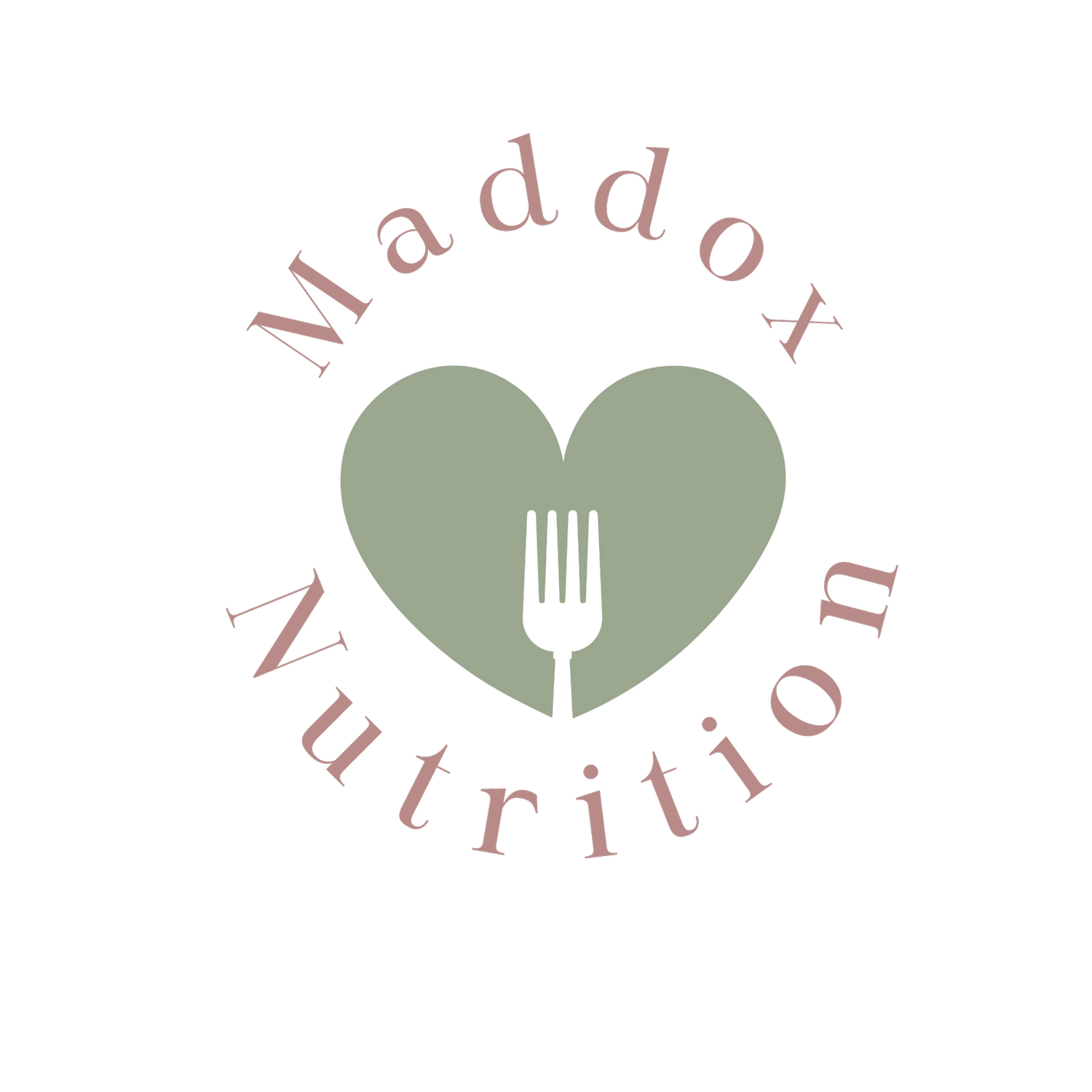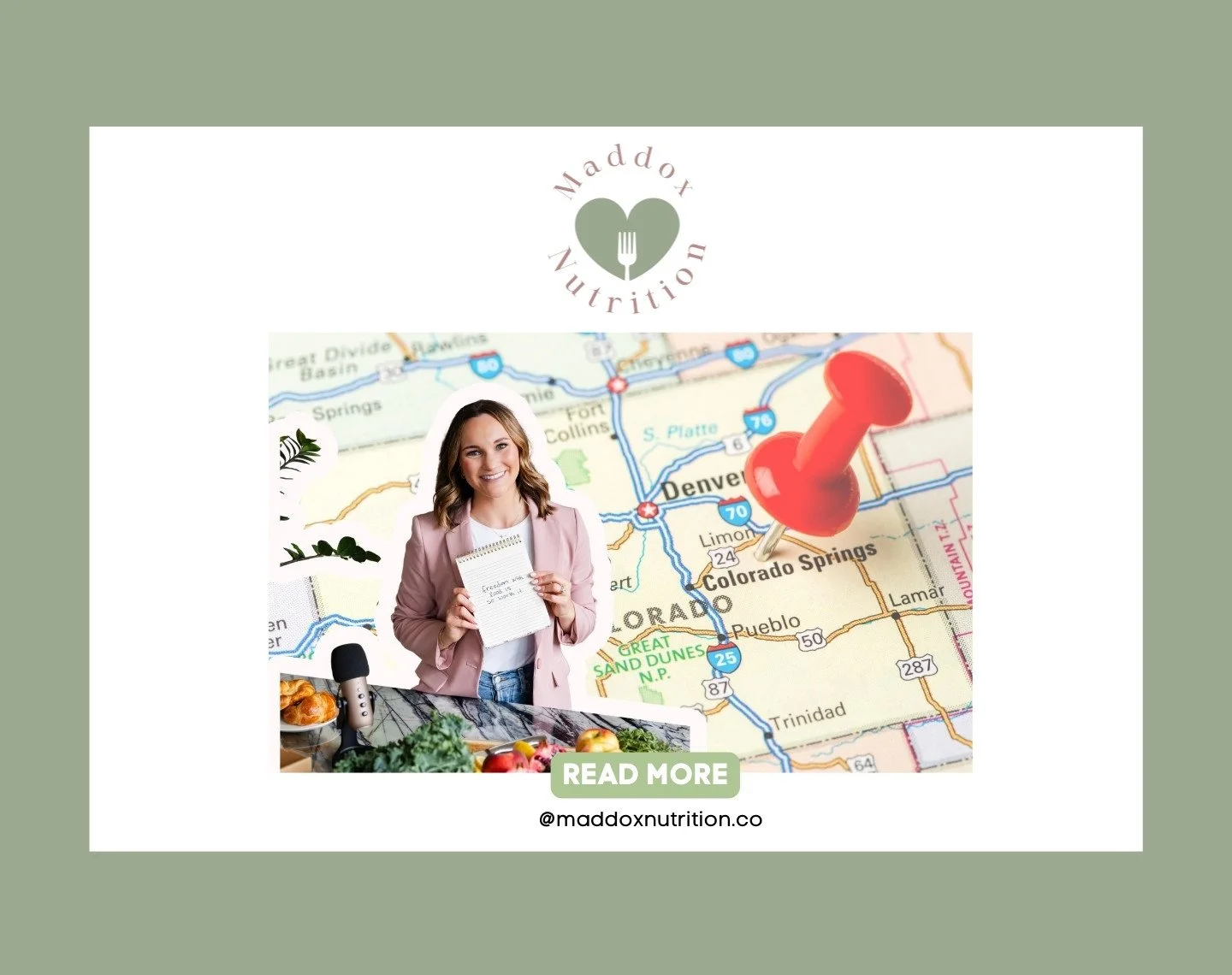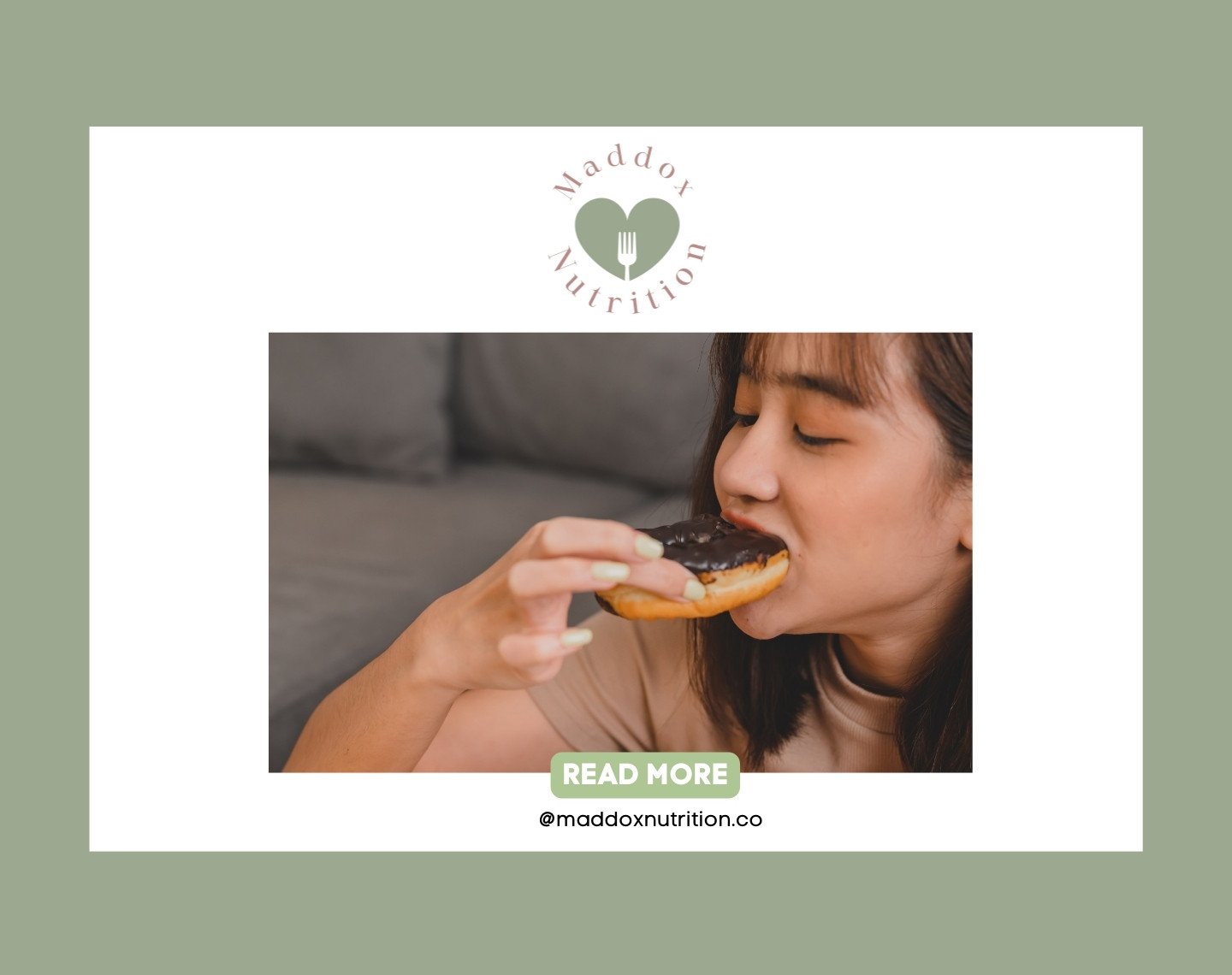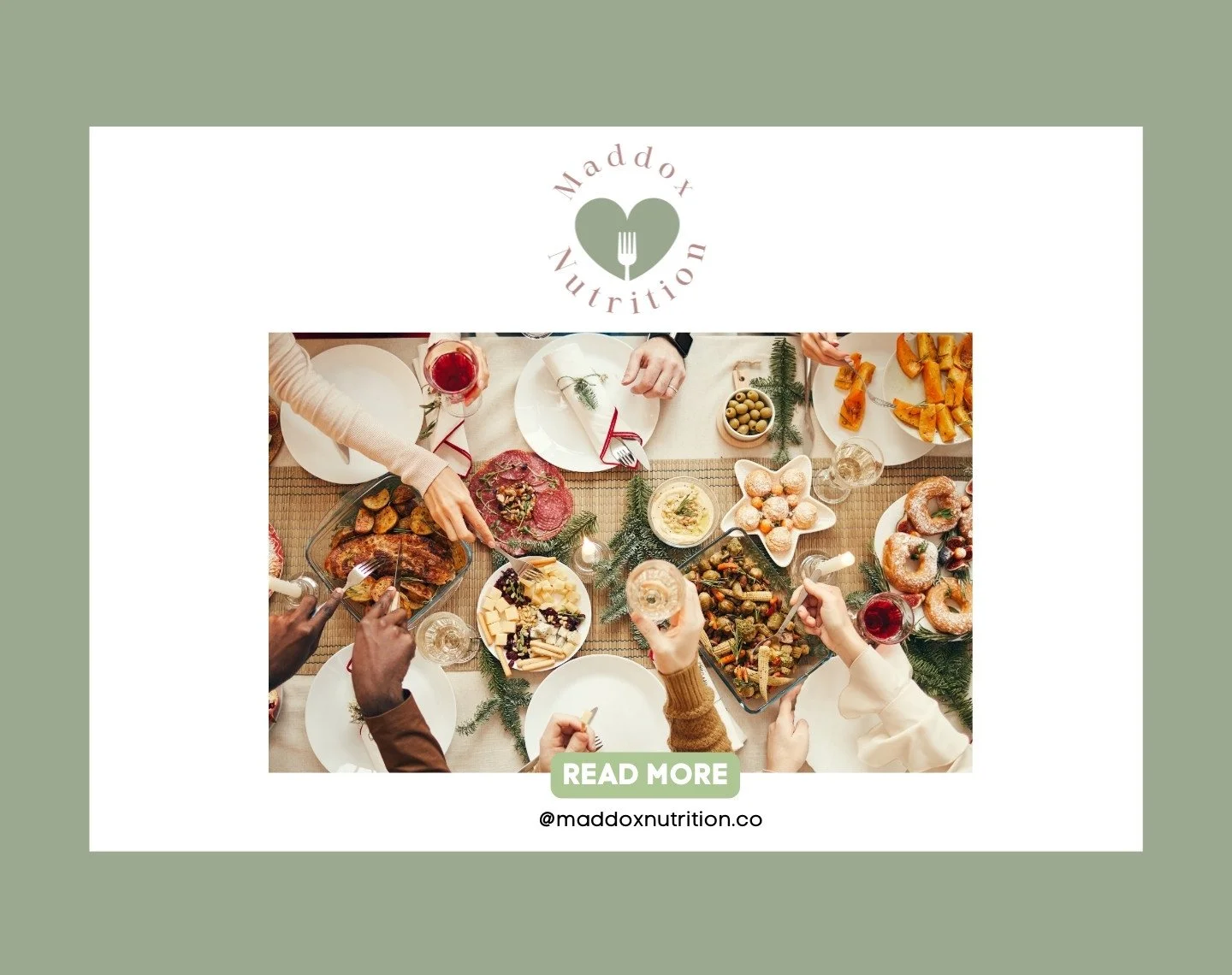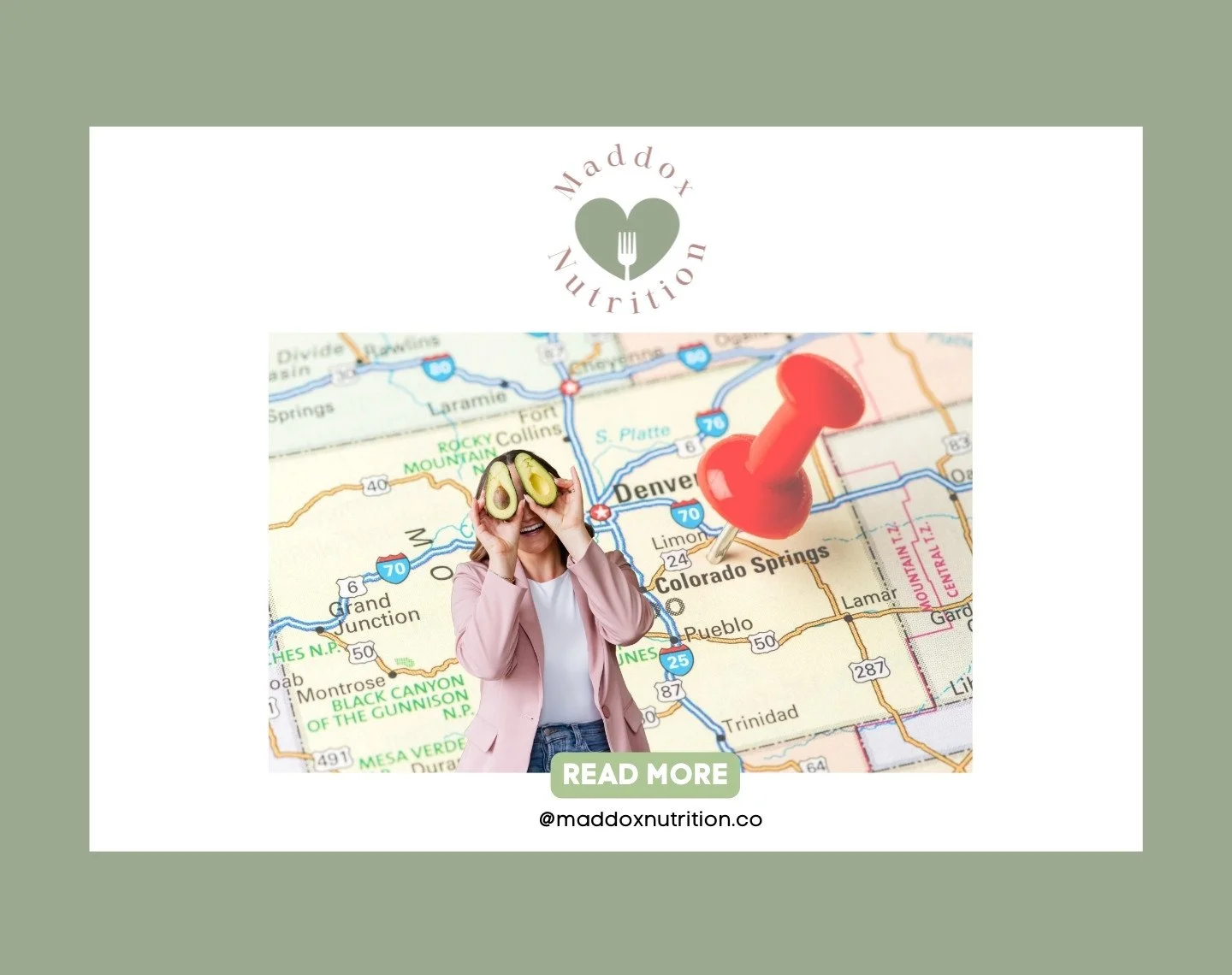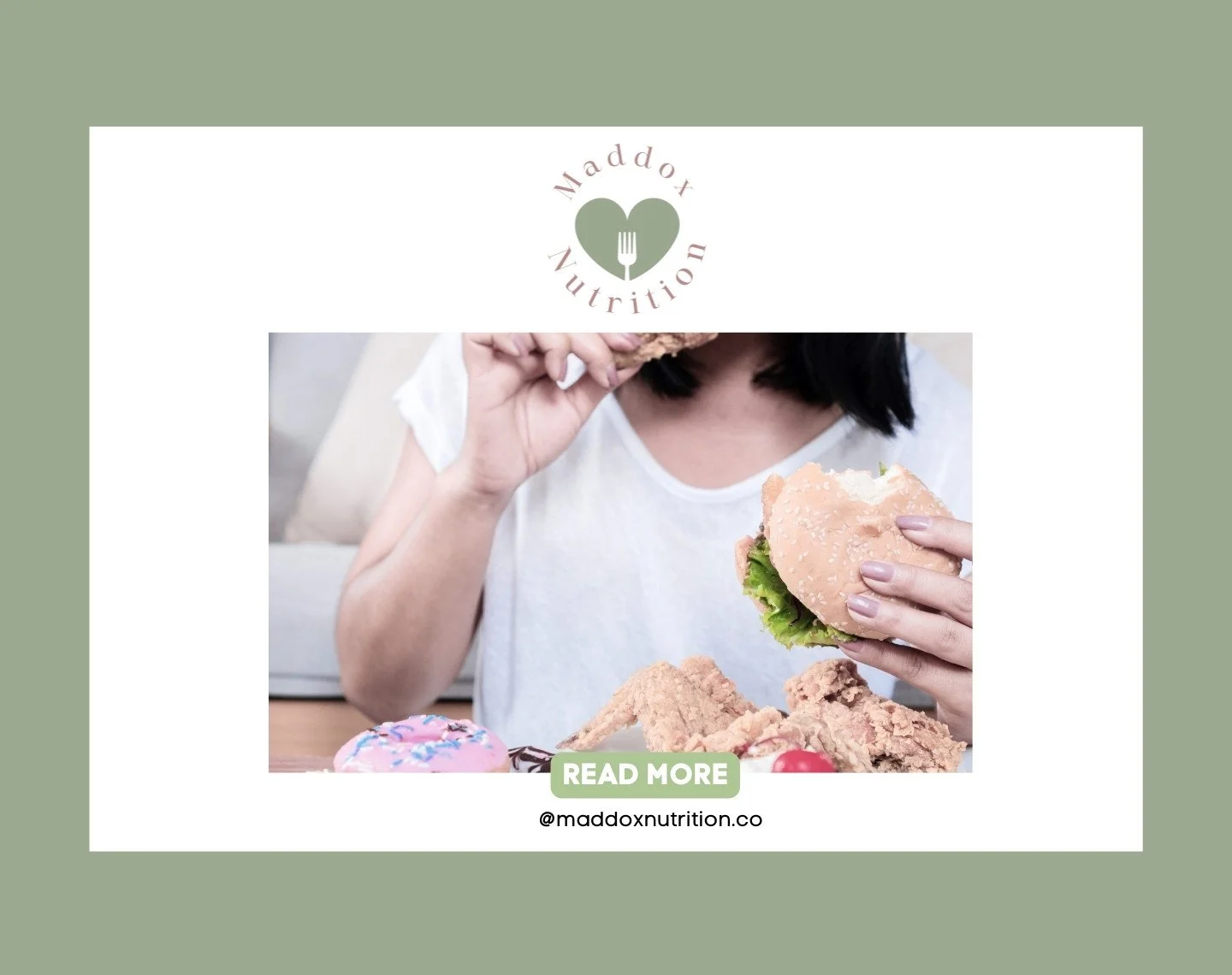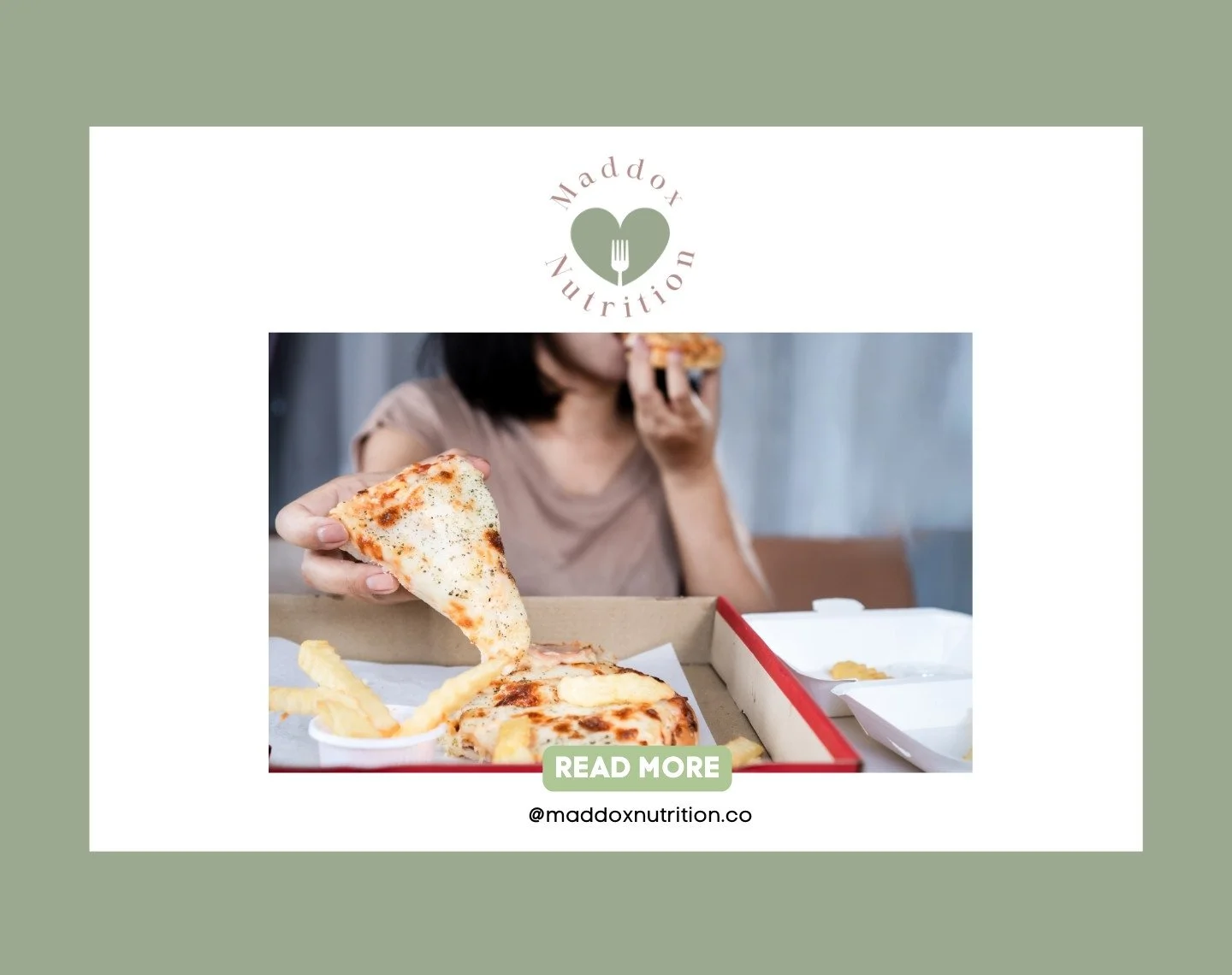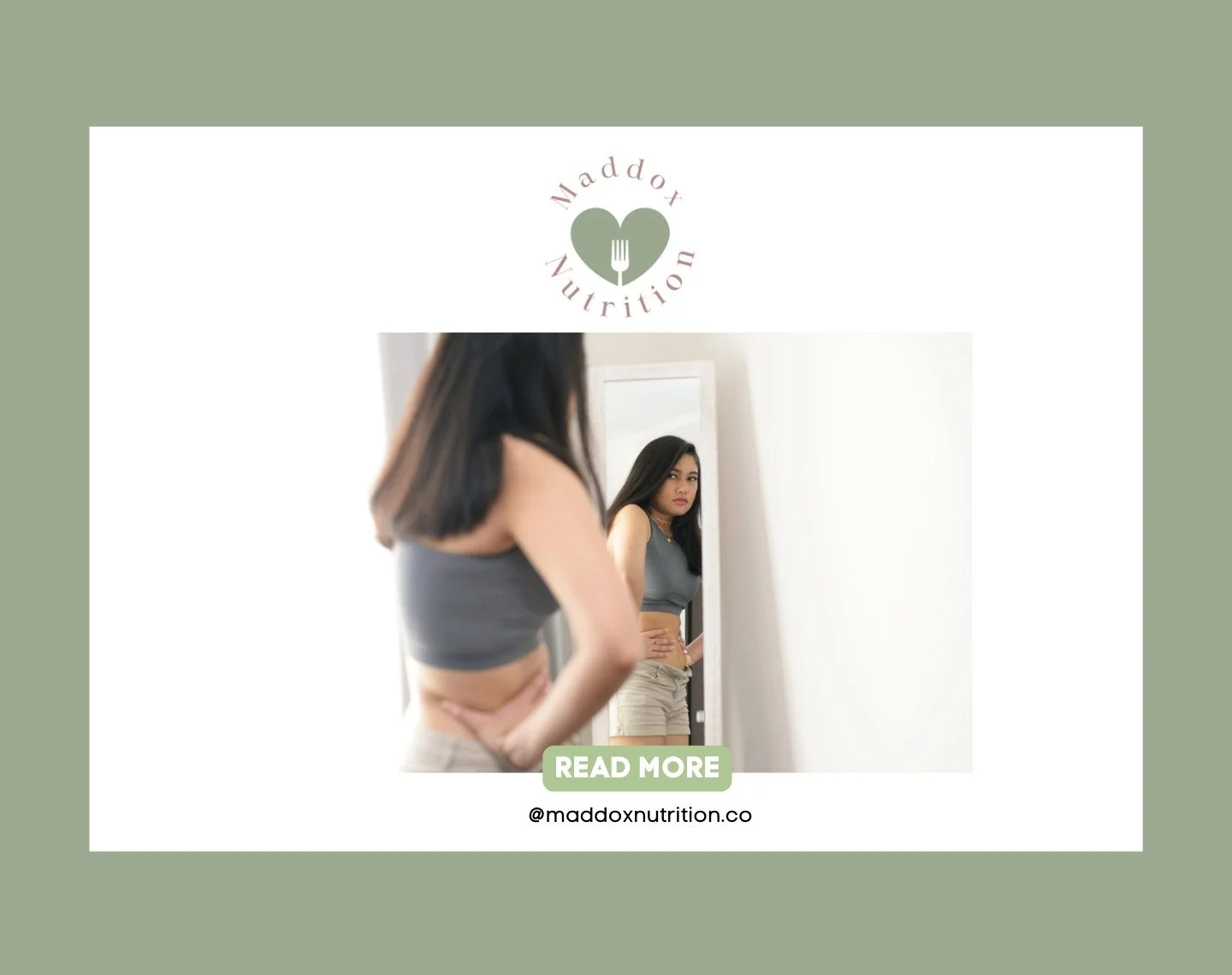Eating Disorder Treatment Options in Colorado Springs: What You Need to Know
Finding eating disorder treatment in Colorado Springs can be challenging, especially with no in-person PHP or IOP programs currently available. Many individuals and families feel unsure about where to start or which level of care fits their needs. Understanding the difference between treatment options, how referrals work, and where specialized providers are located can make the process less overwhelming. With the right guidance, people in Colorado Springs can still access safe, effective care through nearby outpatient support programs.
5 Things to Do to Improve Your Relationship With Food
Improving your relationship with food begins with understanding how food rules, guilt, and restriction impact your body and mind. A healthier connection with eating allows for nourishment without shame, fear, or control. Learning to honor hunger, welcome all foods, and remove moral labels creates space for trust and balance. When food no longer defines your worth, eating becomes more supportive, flexible, and aligned with your physical and emotional needs over time.
Navigating Christmas Celebration with a Holiday Eating Non-Diet Approach
The holiday season often magnifies pressure around food, body image, and control. For those with eating disorders or disordered eating, this can be especially difficult. A holiday non-diet approach shifts focus away from restriction and shame toward nourishment, self-compassion, and connection. This mindset helps you honor hunger and fullness cues, enjoy special foods without guilt, set boundaries around diet talk, and manage triggers with mindfulness and respect. Embrace a gentler way to celebrate that supports healing and peace with food this Christmas!
How to Find a Christian Dietitian Near You
Finding a Christian dietitian can create a supportive space where faith, nutrition, and emotional well-being work together. Understanding what to look for, such as specialty areas, virtual or in-person availability, credentials, and alignment with faith, can make the search easier and more meaningful. Christian dietitians like those at Maddox Nutrition offer compassionate, Christ-centered support for eating disorders, disordered eating, and anyone seeking peace with food rooted in God’s truth.
Busting the Eating Disorder Myths
Many eating disorder myths still shape how people view food, bodies, and recovery. Maybe you still believe the stereotype that only upper class Caucasian women get eating disorders or that parents are to blame, but these beliefs are far from the truth. Anyone, at any body size or background, can struggle. Breaking free starts with understanding the real facts, offering yourself compassion, and seeing recovery as possible through truth, grace, and self-awareness.
Should You Use Ozempic or GLP-1 Medications for Weight Loss?
GLP-1 medications such as Ozempic, Wegovy, and Mounjaro are powerful tools for diabetes management, but their growing use for weight loss raises serious concerns. These drugs suppress appetite and can disrupt metabolism, hunger cues, and emotional connection to food. Research shows weight often returns when medication use stops, revealing why this approach is unsustainable. As non-diet dietitians, we believe wellness is found not in appetite control but in nourishing your body with trust and compassion.
Overcoming Distorted Views of Eating and Finding Peace with Food
Eating should never feel like a test you can fail, but distorted views of eating can make food feel heavy with guilt, pressure, and confusion. These harmful beliefs are often shaped by diet culture, comparison, and early experiences that disconnect you from your body’s wisdom. Healing starts by questioning those thoughts and learning to trust your natural cues again. Through awareness, compassion, and professional guidance, you can rebuild a peaceful relationship with food rooted in care, balance, and faith-based support.
What is Christian Diet Culture?
Christian diet culture happens when harmful diet messages, often equating thinness with spiritual worth, infiltrate our theology. Weight jokes, moralizing food, and church weight-loss challenges can shape how people view their bodies and their relationship with God. Reclaiming a Christ-centered, non-diet approach means separating faith from food rules, embracing body diversity as part of God’s design, and creating safe church spaces. Through grace and compassion, believers can honor their bodies without shame and nurture communities that reflect the inclusive love and freedom found in the Gospel.
How to Help Someone with an Eating Disorder (Do’s and Don’ts)
Supporting someone with an eating disorder requires compassion, patience, and understanding. Recovery is not a quick process, and setbacks are a normal part of healing. Loved ones can make a difference by listening without judgment, offering encouragement, and respecting boundaries. So, how to help someone with an eating disorder? Avoid comments about weight, appearance, or food choices, as these can be deeply distressing. Every act of empathy and respect helps create a safe environment where recovery becomes less overwhelming and more hopeful.
The Weight-Neutral Approach: Why Health Is More Than a Number on the Scale
A weight-neutral approach shifts the focus away from numbers on the scale and toward behaviors that nurture your overall well-being. Instead of restrictive diets and body shame, this approach emphasizes respect, sustainable habits, and compassionate self-care. By embracing it, you can break free from cycles of guilt and restriction, improve your relationship with food, and reduce the risk of disordered eating. This approach also helps you see your body as valuable and functional, just as it is, and supports lasting healing for both body and mind.
Joyful Movement vs. Exercise: Choosing Joy Over Rules
The way you move your body matters in recovery. Traditional exercise often comes with rules, pressure, and guilt that can reinforce disordered eating patterns. Joyful movement offers a healing alternative. Instead of focusing on calories or performance, it encourages you to listen to your body, embrace flexibility, and find joy in everyday movement. From walking with a friend to dancing in your room, joyful movement shifts your focus from punishment to connection.
5 Signs You're Worshipping Your Body Without Realizing It
Worshipping your body happens when appearance takes center stage in your identity, decisions, and sense of worth, sometimes without you realizing it. From tying your mood to how you look, to planning your life around appearance or letting compliments define your value, body worshiping can quietly limit your freedom. Recognizing these patterns is the first step toward reclaiming joy, health, and self-worth that is not bound by image.
Eating Disorder Recovery Timeline: A Realistic Journey
The eating disorder recovery timeline looks different for everyone. Some stages focus on medical stabilization, while others involve emotional healing and rebuilding a balanced relationship with food. Progress may not always feel linear, and setbacks can happen, yet each step contributes to long-term growth. With the right support, recovery can open space for renewed health, stronger identity, and a more peaceful connection with both body and mind.
What Hunger Really Feels Like (and Why Many People Don’t Recognize It)
Hunger cues are God-given signals designed to guide you in nourishing your body, yet diet culture often teaches you to ignore or suppress them. Over time, this creates confusion around when and how to eat, leading to disordered eating. By learning to recognize the different types of hunger, you can rebuild trust with your body and approach food with freedom. A Christian, non-diet perspective invites you to honor hunger as part of caring for your health and faith.
What Is Body Respect and Why It Matters More Than Weight
Body respect means valuing your body enough to care for it, regardless of how it looks. In fact, studies show that consistent health behaviors such as balanced eating, enjoyable movement, rest, and stress management influence long-term well-being more than weight. Acts of respect can include fueling your body regularly, dressing for comfort, or speaking kindly to yourself. By practicing these choices, you free yourself from the pressures of diet culture and create a healthier, more sustainable relationship with your body.
How Christian Nutrition Can Support Healing Over Restriction
Christian nutrition is not about rigid rules or earning spiritual worth through food choices. It offers a healing path for those recovering from eating disorders or disordered eating by grounding nourishment in grace, not guilt. This approach affirms your body as good, your meals as a gift, and your worth as God-given not weight-dependent. Learn how Scripture supports a life of freedom, compassion, and abundance where food is a good gift, not a test, and healing happens through faith, not fear.
How to Practice Gentle Nutrition Without Falling into a Diet Mentality
Eating with gentle nutrition means finding a balance between nutrition science and your body’s inner wisdom. It encourages you to nourish your body without fear or guilt, and moving away from food rules and toward mindful, values-aligned choices. Instead of focusing on eliminating foods, gentle nutrition is about adding supportive habits and nutrient-rich foods in ways that feel natural to you. This approach respects your hunger and fullness cues while embracing flexibility, satisfaction, and emotional neutrality around eating.
What Does Normal Eating Look Like?
In a world filled with food rules and weight focused messaging, many people have lost touch with their natural hunger and fullness cues. Normal eating is not about perfection. It is about flexibility, variety, and trust in your body. From honoring cravings to eating for both nourishment and enjoyment, it allows space for all kinds of food without guilt. When external pressures override internal cues, eating can become stressful. Reconnecting with your body’s signals can help restore a more peaceful relationship with food.
How to Stop Obsessing Over Food
Food obsession isn’t about lack of willpower, it's your body responding to restriction, fear, and years of diet culture. Whether you’re stuck in a cycle of guilt, constantly thinking about your next meal, or feeling out of control, there is a way out. Learn how food rules, eating disorders, and body image struggles fuel this obsession and discover practical, compassionate tools like intuitive eating, therapy, and body image work to help you break free. Reclaim peace with food and finally stop it from running your life.
What is Body Image? Understanding the Way We See, Feel, and Think About Our Bodies
Body image isn’t just about how you look, it’s about how you feel in your body and how those feelings influence your daily life. If you constantly compare, hide, or criticize yourself, you may be struggling with negative body image. Let’s unpack what body image really is, signs to look out for, and how it impacts your self-worth. You’ll also find practical, compassionate tips to improve your relationship with your body through neutrality, self-talk, and support.
